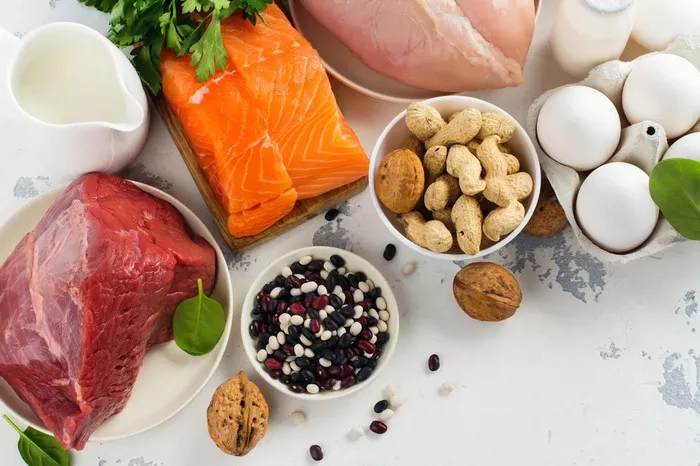In today’s fast-paced world, fatigue and depression are common complaints among many individuals. These issues often have complex causes, ranging from psychological stressors to underlying medical conditions. However, one of the lesser-discussed origins of these symptoms is nutritional deficiency. This article aims to explore how certain nutrient deficiencies can lead to fatigue and depression, unpack the science behind this relationship, and provide guidance on how to address these deficiencies.
The Connection between Nutrition, Fatigue, and Depression
Nutrition plays a critical role in maintaining both physical health and mental wellbeing. The body requires a range of essential nutrients to function correctly, and a lack in any of these can lead to significant health issues, including increased feelings of fatigue and the onset or worsening of depressive symptoms.
1. Iron Deficiency and Its Impact on Health
Iron is crucial for producing hemoglobin, a protein in red blood cells that helps transport oxygen throughout the body. When iron levels are low, common in conditions like iron-deficiency anemia, oxygen transport is impaired, leading to symptoms such as fatigue, weakness, and decreased immune function.
Depression and Iron Levels
Studies have shown a correlation between low iron levels and depression. The brain requires iron for the synthesis of neurotransmitters such as dopamine and serotonin, which are directly involved in mood regulation. A deficiency in iron can disrupt these neurotransmitters’ balance, potentially leading to depressive symptoms.
2. Vitamin D Deficiency: The Sunshine Vitamin
Vitamin D is famously acquired through sun exposure, but it can also be consumed in small amounts through certain foods and supplements. It is essential for bone health, immune function, and brain health.
Fatigue, Depression, and Vitamin D
Research indicates that low levels of vitamin D are associated with a higher risk of fatigue and depression. Vitamin D receptors are widespread in brain tissue, and the vitamin plays a role in the pathways of synthesizing neurotransmitters. A deficiency may impair these processes, exacerbating or potentially initiating depression.
3. The Role of Vitamin B12
Vitamin B12 is vital for red blood cell formation, neurological function, and DNA synthesis. B12 deficiencies are particularly common in vegetarians and the elderly, leading to various neurological and psychological issues.
Linking B12 Deficiency, Fatigue, and Depression
Vitamin B12 is crucial for energy production in the body. Without it, one might experience fatigue due to decreased oxygen transport capacity and impaired energy metabolism. Additionally, B12 is important for neurologic function, and its deficiency is often linked with mood disturbances and depressive symptoms.
4. Magnesium: An Overlooked Mineral
Magnesium is involved in over 300 enzymatic reactions, including those responsible for energy production. It also plays a role in muscle and nerve function, as well as the regulation of blood pressure.
Magnesium Deficiency: Effects on Mood and Energy Levels
Studies suggest that magnesium deficiency may be linked to an increased risk of depression. The mineral is thought to affect the hypothalamus, which regulates pituitary and adrenal glands, affecting stress response. Furthermore, since magnesium is involved in energy production, its deficiency can lead to increased fatigue.
5. Omega-3 Fatty Acids and Mental Health
Omega-3 fatty acids are essential fats that you must obtain through your diet. They are crucial for cardiovascular health and cognitive function, including mood regulation and preventing cognitive decline.
Omega-3s, Depression, and Fatigue
Evidence suggests that omega-3 fatty acids can influence brain chemistry and function, particularly affecting mood-regulating neurotransmitters like dopamine and serotonin. Omega-3 deficiencies have been linked to mood swings, increased fatigue, and depression.
Addressing Deficiencies: Dietary Sources and Supplementation
1. Dietary Sources of Iron
To combat iron deficiency, include more iron-rich foods in your diet such as red meat, poultry, lentils, and spinach. For vegetarians or those who struggle to absorb iron, supplements might be necessary, but they should be taken under medical supervision.
2. Getting Enough Vitamin D
The best source of vitamin D is sunlight, so spending time outdoors regularly is crucial. Food sources include fatty fish like salmon and mackerel, fortified dairy products, and egg yolks. In regions with less sunlight, supplements may be necessary, especially in the winter months.
3. Sources of Vitamin B12
Animal products are the primary sources of vitamin B12. These include meat, dairy, and eggs. For those on a plant-based diet, fortified cereals, plant milks, or supplements might be required to meet their daily needs.
4. Magnesium-Rich Foods
Include more magnesium-rich foods in your diet, such as almonds, spinach, cashews, and black beans. In cases of significant deficiency, a doctor might recommend magnesium supplements.
5. Incorporating Omega-3 Fatty Acids
Increase intake of omega-3 fatty acids by eating more fish such as salmon, mackerel, and sardines. Plant sources include flaxseeds, chia seeds, and walnuts. Supplements like fish oil or algae oil can also be beneficial, particularly for those who do not consume fish.
Conclusion
Addressing nutritional deficiencies is a vital, yet often overlooked, element of managing fatigue and depression. By ensuring a diet rich in essential nutrients and considering supplementation when necessary, individuals can significantly enhance their overall health and wellbeing. As always, it’s important to consult healthcare professionals when making significant changes to your diet or beginning new supplements, especially when other health conditions are present.
This comprehensive approach to understanding and managing the interplay between diet, fatigue, and depression not only promotes better health outcomes but also enhances the quality of life.
[inline_related_posts title=”You Might Be Interested In” title_align=”left” style=”list” number=”6″ align=”none” ids=”7971,7927,7823″ by=”categories” orderby=”rand” order=”DESC” hide_thumb=”no” thumb_right=”no” views=”no” date=”yes” grid_columns=”2″ post_type=”” tax=””]
































